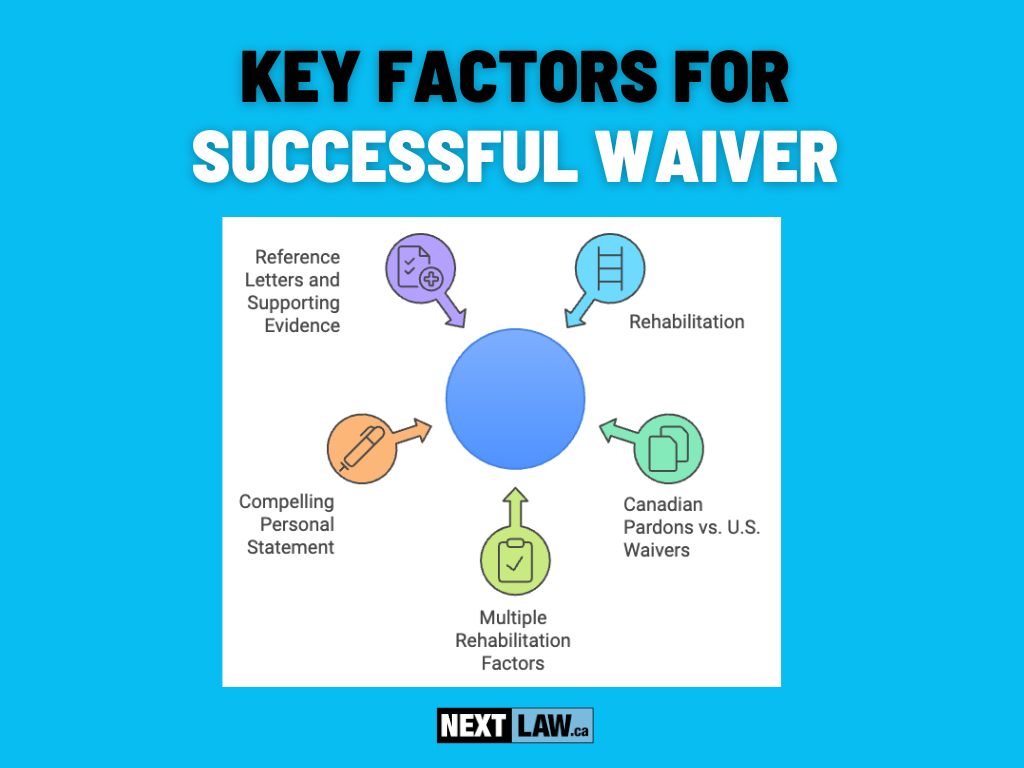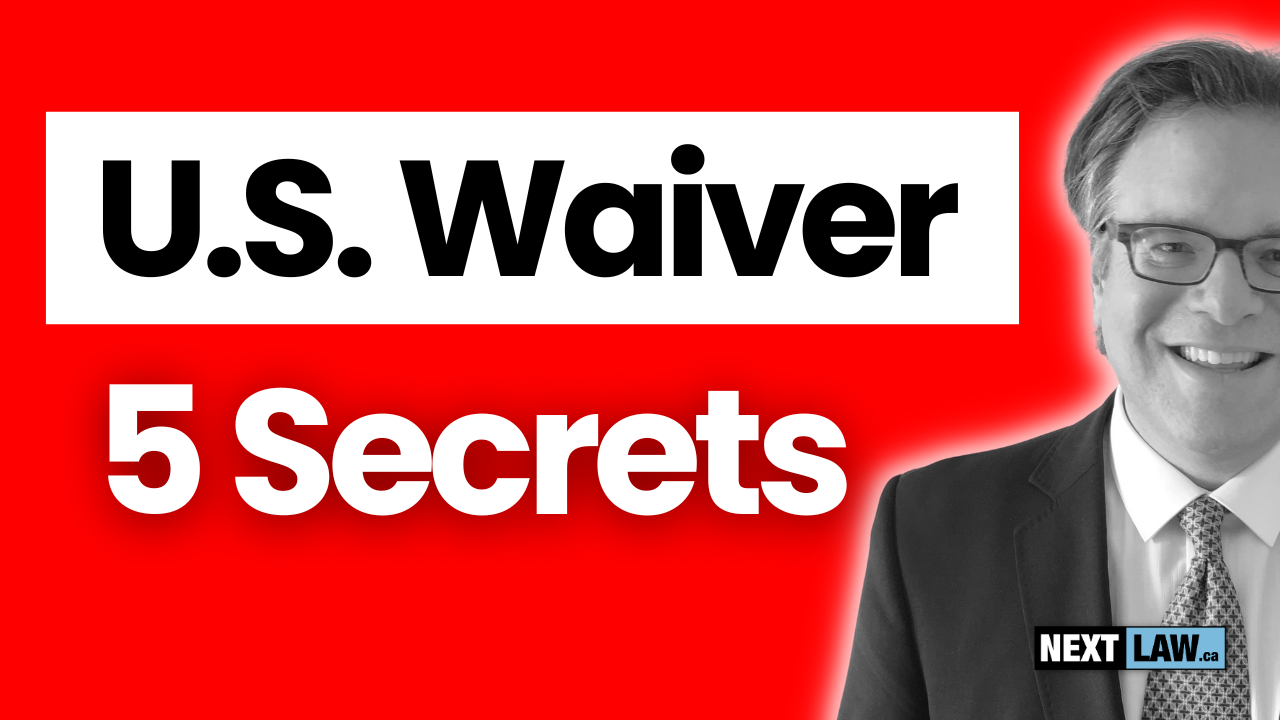This post will reveal five crucial secrets about getting your U.S. entry waiver approved, helping you navigate the complex application process with confidence. Before you apply for a U.S. entry waiver, it’s critical to understand key information that can significantly impact your application’s success. Many applicants are unaware of these important factors, which can make the difference between approval and denial.
1. Rehabilitation: The Secret Sauce of Your Application
At the heart of every successful U.S. entry waiver application lies a critical concept: rehabilitation. But what does this really mean in the eyes of the U.S. Customs and Border Protection?
Rehabilitation is essentially a risk assessment. The Admissibility Review Office, which decides on your waiver, is asking one fundamental question: “Does this person pose any risk of committing a crime in the United States?
They’re looking for evidence that you’ve changed, reformed, and become a different person since committing the offense. This concept is the cornerstone of your application, yet it’s often misunderstood.
2. Canadian Pardons vs. U.S. Waivers: A Crucial Difference
Here’s where many applicants stumble: assuming that Canadian pardon requirements align with U.S. waiver expectations. In Canada, specific waiting periods (usually 3, 5, or 10 years after completing your sentence) generally deem you rehabilitated for a pardon or record suspension.
The U.S. system, however, works differently. There’s no equivalent legislation stating that waiting a certain amount of time automatically deems you rehabilitated. While time is a factor, it’s only one piece of a larger puzzle.

3. The Multi-Factor Rehabilitation Assessment
So, what does the U.S. government consider? The Admissibility Review Office looks at a range of factors to assess your rehabilitation:
- How has your life changed since the offense?
- Have you undergone any therapy to address the behavior that led to the crime?
- What’s your current family situation?
- How has your work life evolved?
- Where do you live now, and how has your lifestyle changed?
They’re seeking concrete evidence of personal growth and change. It’s not just about time passed; it’s about how you’ve used that time to become a different person.
4. Crafting a Compelling Personal Statement
Your personal statement is your opportunity to showcase your rehabilitation to the Admissibility Review Office. It’s not enough to simply claim you’ve changed; you need to demonstrate it.
In your statement, address:
- How you’ve taken responsibility for your past actions
- Specific steps you’ve taken to ensure you won’t repeat the offense
- How your life circumstances have changed
- Your current goals and aspirations
Remember, honesty and sincerity are crucial. The reviewers are experts at detecting insincerity, so be genuine in your account.
5. The Power of Reference Letters and Supporting Evidence
One of the most underutilized secrets in waiver applications is strong supporting evidence. At a minimum, you need two reference letters. However, these can’t be from family members, and the writers shouldn’t have criminal records themselves.
Ideal reference letters come from individuals who can attest to your personal growth, such as:
- An employer who’s witnessed your improved work ethic
- A community leader who’s observed your personal development
Other powerful pieces of evidence might include:
- Letters from therapists or counselors if you’ve undergone treatment
- Certificates from programs or courses you’ve completed
- Documentation of awards or recognition received since your offense
- Evidence of community involvement or volunteer work
The more data points you can provide to illustrate your transformation, the stronger your case becomes.
Conclusion
Getting your U.S. entry waiver approved isn’t just about waiting out a certain time period. It’s about demonstrating real, meaningful change in your life. Time matters, but it’s just one factor among many. The secret to approval lies in showing clear, convincing proof of your rehabilitation through multiple avenues – your personal statement, reference letters, supporting evidence, and any other relevant information you can provide.
By understanding and applying these secrets to your waiver application, you’ll significantly increase your chances of approval. Remember, the goal is to paint a comprehensive picture of how you’ve changed and why you no longer pose a risk. With careful preparation and attention to these key areas, you can present a compelling case for your U.S. entry waiver approval.
What is the most important factor in getting a U.S. entry waiver approved?
Rehabilitation is the most crucial factor, demonstrating that you've reformed and no longer pose a risk of committing a crime in the U.S.
Do Canadian pardon requirements align with U.S. entry waiver expectations?
No, U.S. waiver expectations differ significantly, with no equivalent legislation automatically deeming you rehabilitated after a set period.


